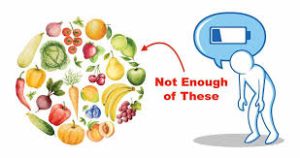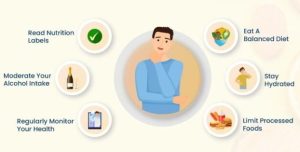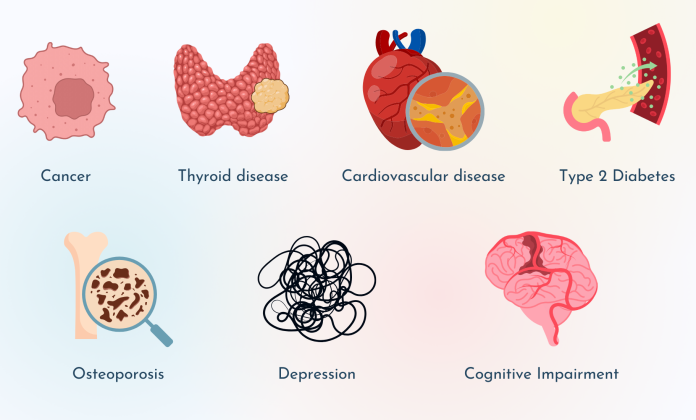Our bodies talk to us all the time, giving us hints about what they need. Sometimes, they’re trying to tell us we’re missing important vitamins and minerals. These shortages are common, but we often miss the signs. New studies show that even in places with plenty of food, many people don’t get all the nutrients they need.
This is surprising and makes us wonder about what we eat and how we live. Understanding how nutrients work in our bodies isn’t just about counting what we eat or following new diet trends. It’s about learning what our bodies are trying to tell us. When we know these signs, we can make better choices for our health.
 Why we might lack nutrients
Why we might lack nutrients
There are several reasons why we might not get enough nutrients:
What we eat: Sometimes, we don’t eat enough foods with the right vitamins and minerals.
Health issues: Some health problems can make it hard for our bodies to use nutrients properly.
Medicines: Some medicines can lower the amount of nutrients in our body.
According to Dr. Folake Samuel, a nutrition researcher from Nigeria, certain medications can significantly impact our nutrient levels.
“Birth control pills, for instance, can lower levels of B vitamins and some minerals in the body,” she explains. “Antibiotics, while essential for fighting infections, can also deplete various vitamin stores.” Dr. Samuel adds that even common medicines for stomach acid can interfere with how we absorb certain nutrients, particularly vitamin B12 and magnesium.
Signs our bodies need more nutrients
Our bodies have clever ways of telling us when something’s not right. Here are some signs to watch for:
Hair falling out more than usual: This might mean we need more iron.
Gums bleeding or cuts healing slowly: This could mean we need more vitamin C.
Feeling very tired all the time: We might need more vitamin D or iron.
Getting bruised easily: This could mean we need more vitamin C or iron.
Dr. Tola Atinmo, who studies nutrition in Nigeria, says it’s important to notice these signs early. Fixing nutrient shortages can often make us feel much better overall.

Getting help
If you notice any of these signs, it’s best to talk to a doctor before taking any vitamins or supplements. They can help figure out if you’re really low on nutrients and suggest the best way to fix it.
Preventing nutrient deficiency
The best way to avoid nutrient shortages is to eat a mix of different healthy foods. Dr. Hester Vorster, who studies nutrition in South Africa, says we should eat lots of fruits, vegetables, whole grains, and lean meats.
Sometimes, even with a good diet, we might need extra help. This is especially true for pregnant women, older adults, or people with certain health issues. A doctor might suggest taking vitamins if your diet doesn’t give you everything you need.
Remember, everyone’s body is different. What works for one person might not work for another. Things like age, gender, and overall health all play a part in what nutrients we need.
Staying informed about nutrients and paying attention to what our bodies tell us can help us stay healthier. By eating well, getting regular check-ups, and taking vitamins if we need them, we can give our bodies what they need to work their best.
Learning to understand what our bodies are saying is a big step towards feeling more energetic and healthier every day. It’s not just about avoiding sickness, but about helping our bodies be as strong and healthy as they can be.


